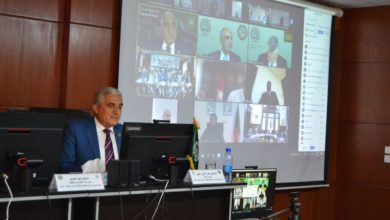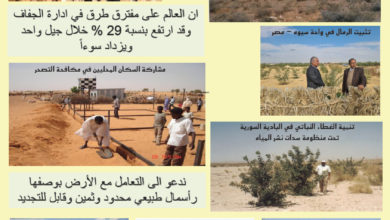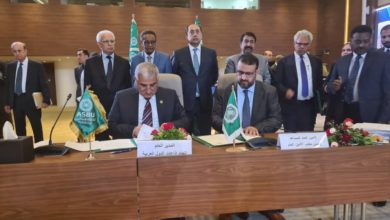ACSAD and FAO / training course in Amman
It was inaugurated in the Jordanian capital, Amman, today, Sunday, September 11,2022 under the generous patronage of his Excellency Eng. Khaled Al-Hanaifat, minister of agriculture of the Hashemite kingdom of Jordan, and with the participation of his Excellency Dr. NaserAldinAl-Obaid, Director General of the Arab Center for the Studies of Arid zones and Dry lands and Mr. Nabil Assaf representative of the Hashemite Kingdom of Jordan. The Food and Agriculture Organization of the United Nations “FAO” the work of the training course organized by ACSAD in cooperation with the FAO on irrigation water management.
The opening ceremony was attended by his Excellency the Syrian Ambassador in Amman, the founder of the Arab Agricultural Forum Mr. Awni Club, the Director of the office of the Arab Organization for Agricultural Development in Amman, and specialized engineers from the Manaseer Group.
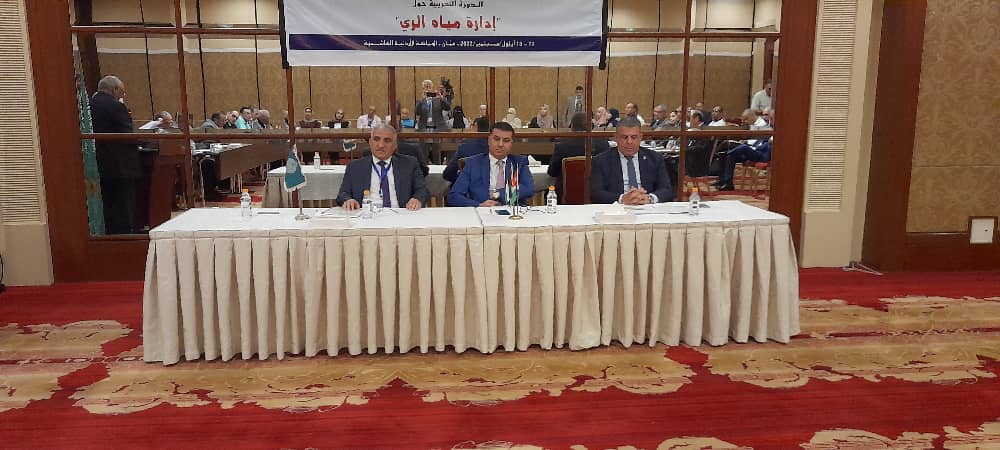
Dr. Naser Aldin Al-Obaid Director General of ACSAD, expressed his appreciation and glorification to the brotherly Jordan, its people, civilization and history, and to the leader of his career, his Majesty King Abdullah II Ibn Al-Husin, with his wisdom and right vision, which contributed to the progress and prosperity of the country of the people in various fields.
He reviewed some of the agricultural development projects implemented by ACSAD in the Hashemite Kingdom of Jordan related to water resources management rationalization and rainwater harvesting in (Sabha, Sabinah, Dajaniya and Rawdat Prince Ali site), and ACSAD’s active contributions in the field of climate change assessment and its effects in the two sectors.
Agriculture and Water in the Arab Region, and praised the initiative of his Excellency President of the Arab Republic of Egypt , to plant 100 million fruitful trees, and the two initiatives of his Royal Highness Prince Mohammad bin Salman, Crown Prince of Saudi Arabia ( Green Saudi Arabia, Green Middle East ) and the importance of these initiatives mitigate the negative effects of climate change and their contribution to achieving Arab food security.
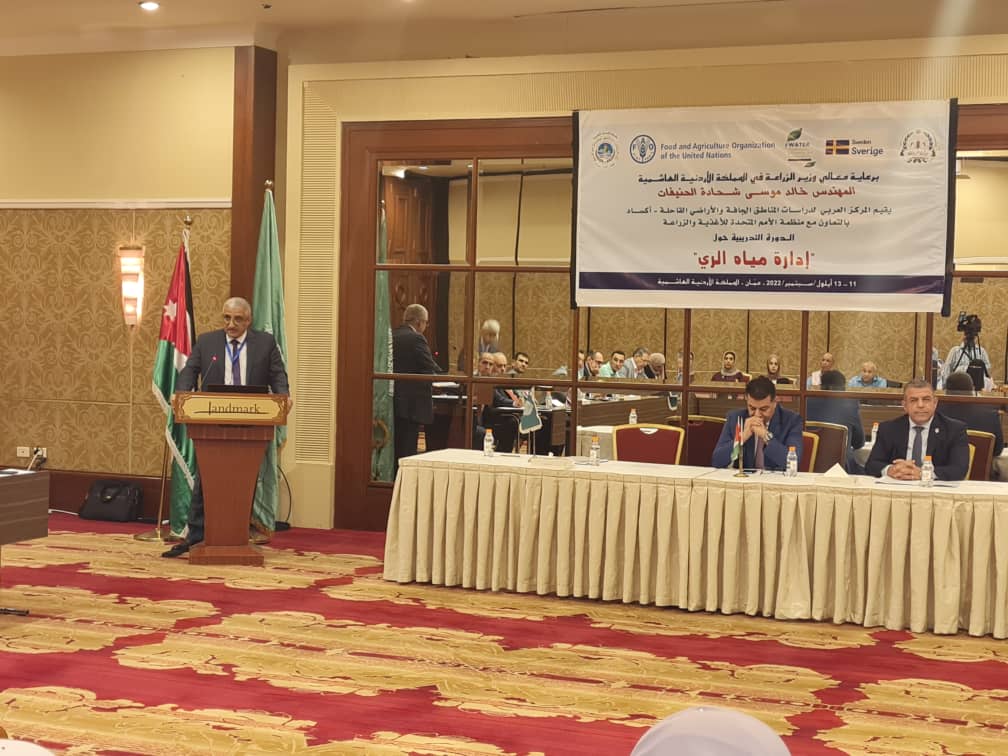
He stressed the importance of full cooperation with the Jordanian Ministry of Agriculture in all areas that serve the agricultural sector and support water harvesting projects, noting ACSAD’s permanent readiness to provide expertise and advice and contribute to research and studies that contribute to the development of sustainable agricultural programs in the sisterly Hashemite Kingdom of Jordan and the Arab region in general.
For his part Excellency Eng. Hanifat, in his speech expressed his thanks and appreciation to ACSAD, praising its great cooperation and implementation of various projects in Jordan and the Arab countries, and the need to develop ways of cooperation in the field of water harvesting, especially in light of the situation of low rainfall and focus on the elements of sustainability in all projects, where groundwater will be excluded due to its importance and scarcity, and the tendency to invest recycled water, excavation plants for companies within the afforestation projects of the desert line.
Al-Hanaifat stressed the importance on benefiting from the expertise of ACSAD through conservation agriculture, which saves water and provides higher rates of production, in addition to finding innovation solutions in dealing with the decrease in rainfall, which has approached 40%in the south, water harvesting programs and an number of joint projects.
It should be noted that 18 trainees from the Jordanian Ministry of Agriculture participated in this course aimed at building the capacity of engineers in the ministry in the field of irrigation water management, to enable them to rationalize the water resources used in the field of irrigation, and raise the efficiency of workers in this field. The course is for three days, during which the focus is on a number of axes and topics, the most important of which are circulating the water needs of agricultural crops, scheduling irrigation in conditions of water scarcity, using mathematical modeling to manage irrigation water, and raising water productivity.
